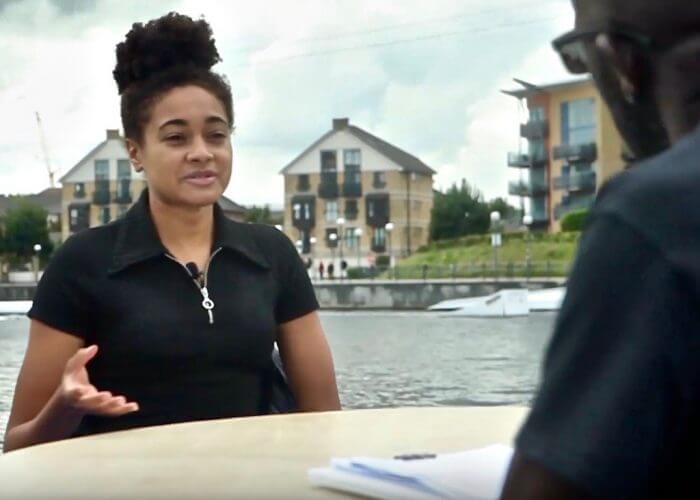Black Swimming Association Marks First Anniversary With News Of Research Project

The Black Swimming Association (BSA) marked its first anniversary with news of plans to undertake a pioneering research project aimed to tackle inequalities and barriers that preclude African, Caribbean and Asian communities from participating in aquatics.
The announcement was made on Tuesday 2 March, with co-founders Danielle Obe, Ed Accura, Seren Jones and Alice Dearing hosting a virtual event to mark the occasion.
In attendance were key stakeholders in the aquatic sector including the BSA’s official partners, sponsors, national governing bodies, operators, aquatic brands, sports councils, government agencies, media outlets and MPs.
The research is part of the BSA’s three-year strategic plan and core mission to ensure people from African, Caribbean and Asian communities have an accessible, inclusive and safe experience in and around water.
CEO Obe said:
“Our goal is to serve people from under-represented communities of African, Caribbean and Asian heritage with excellence and consistency; and our partnerships are intended to provide the right platform and create access to build bridges into these communities upon which the wider sector can drive through required change.
The method is to engage, build, educate, change and embed while setting out a roadmap with specific targets within a timeline.
As the first of its kind to be conducted in the UK, the research project will be qualitative, quantitative and academic in nature.

Alice Dearing & Ed Accura: Photo Courtesy: Ed Accura
It will focus on identifying, understanding and removing barriers that have led to a significant proportion of people from ethnically diverse communities, particularly those from lower socio-economic backgrounds, disengaging with the country’s aquatics sector.
The BSA intends to take a collaborative approach with the project and aims to engage with key stakeholders and organisations who are truly passionate about the BSA’s vision: working towards a future with ethnic diversity in aquatics.
Since its launch last year, the BSA believes that swimming, a water-safety and drowning prevention tool, is an essential life-saving skill everyone should have regardless of age, gender, ethnicity or status.
According to the Canal and Water Trust, 19% of the population living within one kilometre of waterways in England and Wales are from ethnic minority communities, which is significantly higher than the national population average of just 14%.
Additionally, 61% of households living within one kilometre of waterways are from lower socioeconomic backgrounds.
Today, these communities also feel the largest impact of COVID-19 when it comes to aquatic facilities.
With the high risk of many pools in these areas not reopening post lockdown, this forces the sector to revisit how basic water-safety education will be delivered to all school children, especially those who have already missed out on their school swimming terms.
Last year, Sport England’s Active Lives Survey revealed 95% of Black adults and 80% of Black children in England do not swim, whilst 93% of Asian adults and 78% of Asian children follow the same pattern.
In a bid to tackle these statistics, as well as focusing on water safety, the BSA’s three-year strategic plan includes engaging and collaborating directly with disenfranchised communities; providing visibility, equal access and pathways to aquatic career opportunities; and raising awareness of the mental and physical health benefits that go hand-in-hand with aquatics.
Consequently, not only is the BSA committed to bridging the gap between the aquatic sector and those who are disengaged in these communities – for whom the risk of drowning is higher – but the organisation is also pushing to highlight its agenda through mandatory education and water-safety measures.
One year since its inception, despite the continued impact of COVID-19 lockdown restrictions on swimming pools and the aquatics sector, the Black Swimming Association has continued paving the way in addressing issues of ethnic diversity in aquatics.
Obe said: “There are no quick fixes. The aquatic sector as a whole must tackle inherent systemic and institutional inequalities, get out of their comfort zones and be deliberate in engaging with disenfranchised communities to build trust, and through collaboration, empower and embolden these communities to also effect change from within.”
The Black Swimming Association, is the UK’s first non-profit organisation dedicated solely to tackling participation rates in aquatics, amongst African, Caribbean and Asian communities in aquatics.
Advertising: Shop At Swim360



